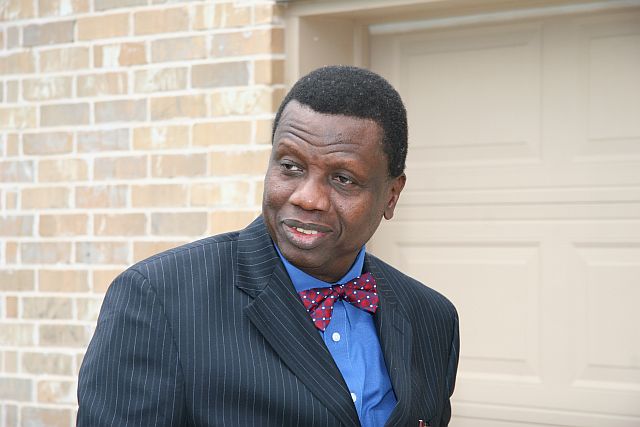Life And People
Death Of General Paul Okuntimo: Matters Arising -By Henry Chukwuemeka Onyema
Whether Abacha gave Okuntimo carte blanche to do what he did in Ogoni-land is another matter. But the officer’s subsequent actions were allowed full bloom and enjoyed the approval of the powers that be. But the man who publicly claimed he knew at least two hundred and four ways to kill a person set a record with the killing of the Ogoni. His role in the eventual deaths of Ken Saro-Wiwa and other Ogoni activists is on record.

General Paul Okuntimo, a retired army officer from Yagba East local government area of Kogi State, was the security adviser to the state governor, Yahaya Bello, till his death which is published in the online edition of The NEWS magazine ( 12 July 2021). It was reported that he had health challenges.
The excesses of this soldier as a Major and later Lieutenant-Colonel, commanding the Special Task Force sent by the regime of General Sani Abacha to ‘pacify’ Ogoni-land is well documented. When the Movement for the Survival of the Ogoni People (MOSOP) led the Ogoni people to demand for their rights against the backdrop of oil exploitation by Shell Petroleum, with active official blessing, Abacha decided to unleash his full dictatorial powers.

Whether Abacha gave Okuntimo carte blanche to do what he did in Ogoni-land is another matter. But the officer’s subsequent actions were allowed full bloom and enjoyed the approval of the powers that be. But the man who publicly claimed he knew at least two hundred and four ways to kill a person set a record with the killing of the Ogoni. His role in the eventual deaths of Ken Saro-Wiwa and other Ogoni activists is on record. Those who want to learn about these ugly historical events can read these available books: 1. THIS HOUSE HAS FALLEN by Karl Meir 2. A SWAMP FULL OF DOLLARS by Michael Peel. Reports of organizations like Human Rights Watch and Amnesty International from that period can be accessed.
Perhaps these extracts from THIS HOUSE HAS FALLEN can help readers understand Okuntimo’s modus operandi in crushing MOSOP and the Ogoni people whose only crime was to demand to have control of the oil from their land and be treated justly by the exploring oil companies and the government:

‘The Rivers State government’s strategy was laid out in a secret memorandum that Okuntimo sent to the military administrator of Rivers State (under Abacha), Lieutenant-Colonel Dauda Musa Komo. The memorandum, dated May 12 1994, outlined a plan of action to neutralize MOSOP and to restore Shell’s activities in the area. ‘Shell’s operations still impossible unless ruthless military operations are undertaken for smooth economic activities to commence,’ it said. Among Okuntimo’s recommendations were ‘wasting operations during MOSOP and other gatherings making constant military presence justifiable,’ ‘wasting targets cutting across communities and leadership cadres, especially vocal individuals in various groups,’ and ‘wasting operations coupled with psychological tactics of displacement/wasting as noted above.’ Unauthorized visitors from Europe were to be banned in Ogoni-land and surveillance was to be stepped up on ‘Ogoni leaders considered as security risks/MOSOP propellers.’ (p.103).
The memorandum was adopted and successfully implemented, with Okuntimo as the arrowhead. The commander, in a televised press conference at the height of the Ogoni crisis, stated how his diabolical plan was successfully achieved:
‘The first three days of the operation, I operated in the night. Nobody knew where I was coming from. What I will just add is that I will take some detachments of soldiers; they will just stay at the four corners of the town. They have automatic rifles that sound death. If you hear the sound you will freeze. And then I will equally choose about twenty soldiers and give them grenades, explosives, very hard ones. So we shall surround the town at night. The machine (gun, probably) with five hundred rounds will open up. When four or five like that open up and then we are throwing grenades and they are making ‘eekpuwaa!’ What do you think the…and they know I am around, what do you think the people are going to do? And we have already put roadblocks on the main road, we don’t want anybody to start running….as the option we made was that we should drive all these boys, all these people into the bush with nothing except the pants and the wrapper they are using that night.’ (p.107)
Nigerians have short memories. We do not read, and ethnicity blinds people. Young people who did not witness the days of Abacha will be conned when revisionists of history lionize this man as an officer and gentleman of the Nigerian army. In sane climes Okuntimo should have had his day in court. To the best of my knowledge the man never apologized for his actions. Like General Ibrahim Haruna who used his pursuit of Nigerian unity to justify his men’s massacre of defenceless Igbo people during the civil war before the Oputa panel, I have no doubt Okuntimo can claim he was following orders. Sadly, that argument has been rubbished in international law after World War Two with the Nuremberg trials of Adolf Hitler’s generals for their war crimes. Their argument that they were following the Fuehrer’s orders did not save them from the hangman. It is because we give soft-landing to people like Okuntimo that excesses by people in power in Nigeria remains a national culture.
Henry C. Onyema is a historian, teacher and author of IN LOVE AND IN WAR. Email: henrykd2009@yahoo.com



















